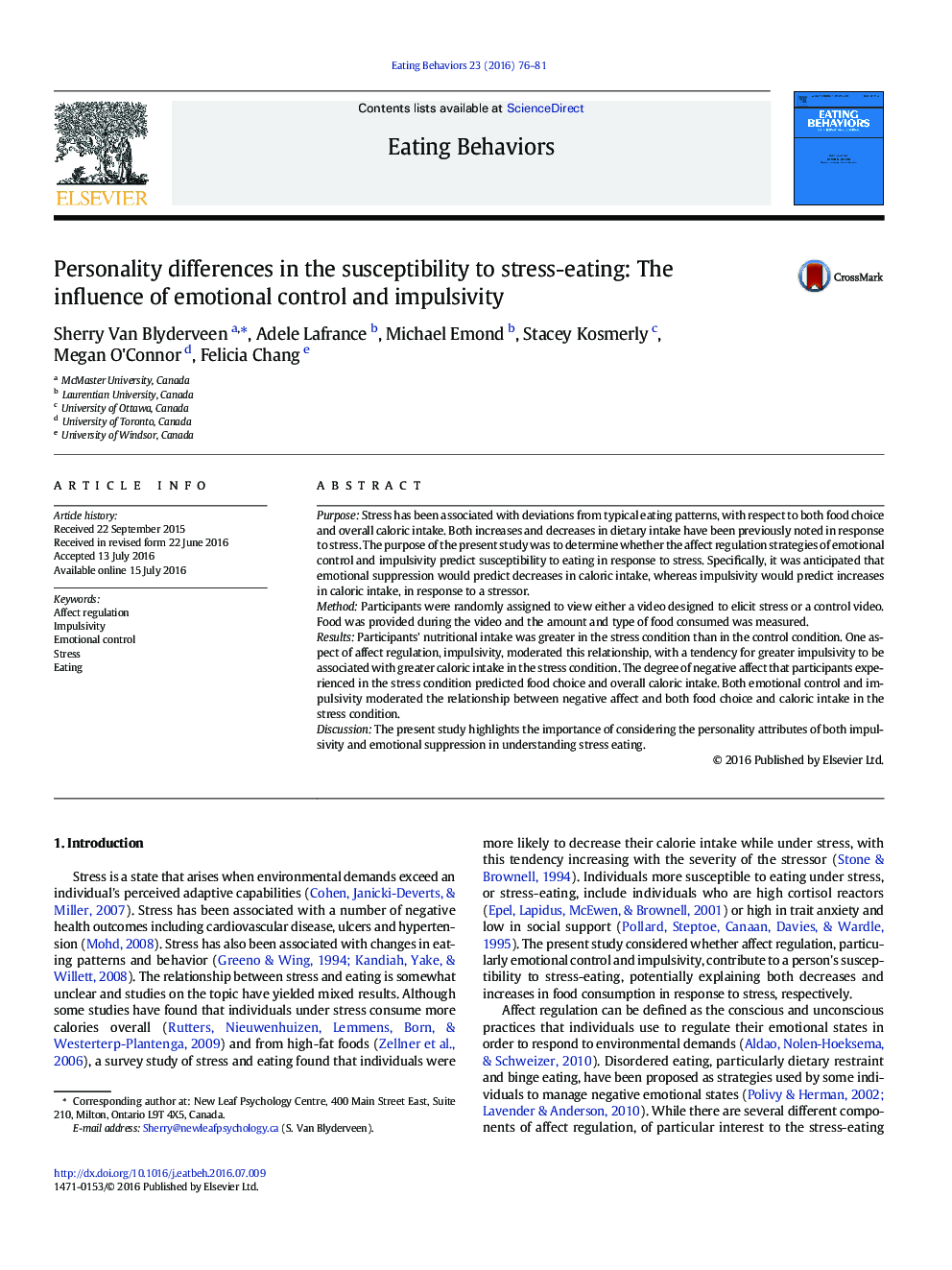| Article ID | Journal | Published Year | Pages | File Type |
|---|---|---|---|---|
| 906177 | Eating Behaviors | 2016 | 6 Pages |
•Fluctuations in dietary intake have been noted in response to stress•Impulsivity was associated with a greater vulnerability to eating under stress.•Both variables of interest moderated the relationship between negative affect and dietary intake in the stress condition
PurposeStress has been associated with deviations from typical eating patterns, with respect to both food choice and overall caloric intake. Both increases and decreases in dietary intake have been previously noted in response to stress. The purpose of the present study was to determine whether the affect regulation strategies of emotional control and impulsivity predict susceptibility to eating in response to stress. Specifically, it was anticipated that emotional suppression would predict decreases in caloric intake, whereas impulsivity would predict increases in caloric intake, in response to a stressor.MethodParticipants were randomly assigned to view either a video designed to elicit stress or a control video. Food was provided during the video and the amount and type of food consumed was measured.ResultsParticipants' nutritional intake was greater in the stress condition than in the control condition. One aspect of affect regulation, impulsivity, moderated this relationship, with a tendency for greater impulsivity to be associated with greater caloric intake in the stress condition. The degree of negative affect that participants experienced in the stress condition predicted food choice and overall caloric intake. Both emotional control and impulsivity moderated the relationship between negative affect and both food choice and caloric intake in the stress condition.DiscussionThe present study highlights the importance of considering the personality attributes of both impulsivity and emotional suppression in understanding stress eating.
